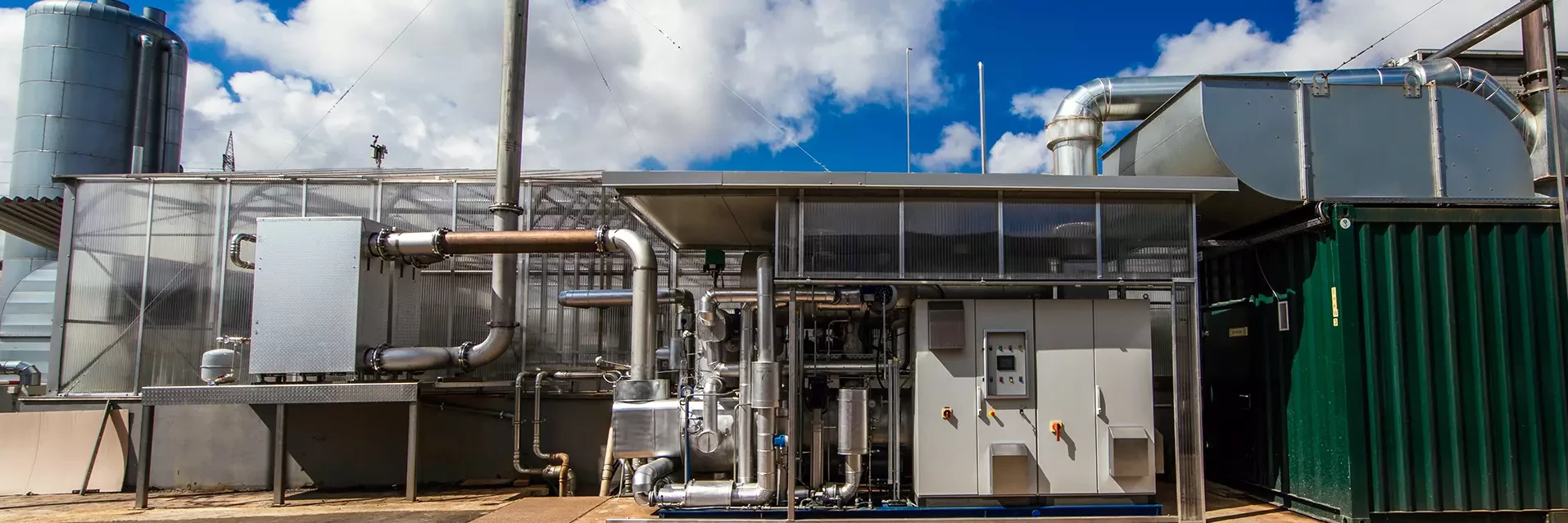Technology leaders Dürr and Uniper will jointly offer integrated solutions for waste heat recovery with ORC systems. The cooperation, which was agreed in September 2021, creates synergies for both companies. It is based on Dürr's expertise in ORC modules in the medium power segment and Uniper's competence in integrating and operating such plants in complex customer applications. More comprehensive waste heat utilization enables the reduction of CO2 emissions in the short term and the efficient use of climate-friendly energy in the long term.
Uniper SE and Dürr Systems AG have concluded a cooperation agreement. The aim is to offer customers integrated solutions for waste heat utilization. Both partners see enormous potential for reducing energy consumption in various industrial settings and, thus, making a significant contribution to decarbonization.
Process heat plays a special role in the decarbonization of the industrial sector, as around two-thirds of primary energy consumption is used to generate it. Where process heat is required, considerable amounts of waste heat are generated, which can be utilized in a variety of ways. The greatest ecological and economic effects are achieved by converting waste heat into high-quality CO2-free electric power and putting the residual heat to a downstream use. Waste heat utilization supports the competitiveness of companies through the efficient use of scarce and valuable CO2-free energy sources.
Dürr's Cyplan® Organic Rankine Cycle (ORC) system enables not only the generation of electrical power but also the use of the downstream condensation heat at up to 95 °C for further industrial processes or, for example, for coupling into district heating networks. The system thus pursues a holistic approach in terms of cogeneration and achieves an efficiency of up to 95 percent. The established ORC product range is part of Dürr's environmental technology division Clean Technology Systems. This division also offers, among other things, solutions for industrial exhaust air purification, noise control systems and coating systems for battery electrodes.
Uniper has close ties with industrial customers and brings to the cooperation its expertise in consulting and implementing complex and challenging energy efficiency projects. The company also has many years of experience in the operation of power generation plants. The cooperation focuses on the complete integration of ORC modules in industries such as cement, glass, paper, steel and ceramics, where heat has to be extracted and transferred on a large scale.
Michael Frank, Director Sales & Product Development at Uniper: "Uniper decided to enter into this cooperation, because Dürr offers a mature system that has already been used in a variety of applications and has absolutely convinced us in terms of its reliability and performance. In addition, we see Dürr as the ideal partner to be able to offer our customers a first-class and holistic service with the typical medium-sized output ranges of ORC plants in combination with our expertise in the implementation of energy efficiency measures in the industry: from concept development for the entire plant, the selection of suitable funding instruments, including planning and execution, sustainable operation with maintenance and servicing combined with smart financing solutions and as well as contracting."
Dr. Sebastian Baumann, Senior Vice President & CFO, Dürr Systems AG, Clean Technology Systems: "Uniper brings a wealth of technical expertise, particularly in the targeted analysis of energy generation and use and in the implementation of energy efficiency measures in complex and customer-specific industrial applications. With this partnership, we can serve the market more comprehensively and agile, as it is now required for the industrial transformation. The efficient use of energy and the increased use of alternative energy sources will continue to gain momentum. Our cooperation makes us a strong partner for our customers."
Michael Schmidt, Vice President Energy Efficiency at Uniper: "Both parties complement each other excellently through their many years of experience on both sides. Therefore, it was only logical to design a joint strategy that resulted in a cooperation."
With their cooperation, both companies are making a significant contribution to sustainable waste heat utilization in industrial production thus also supporting decarbonization.

